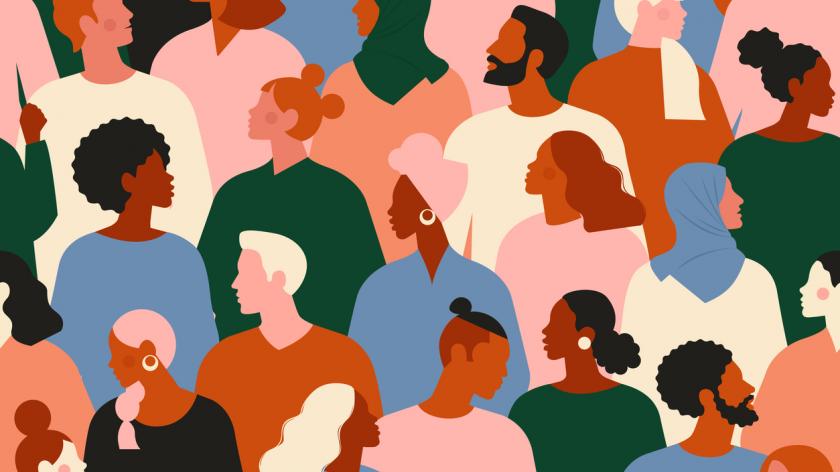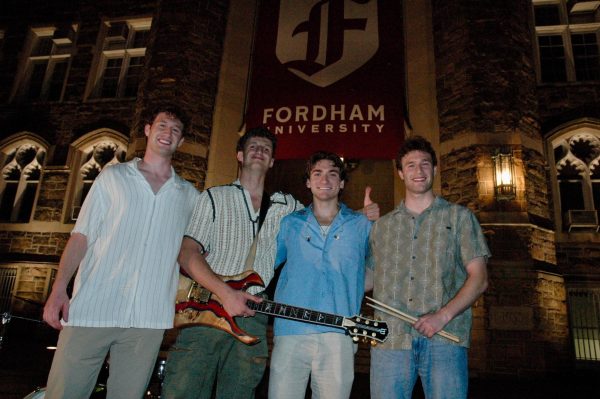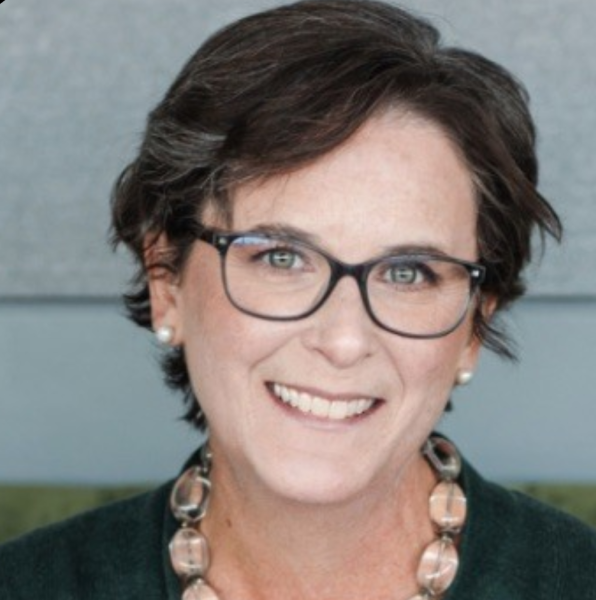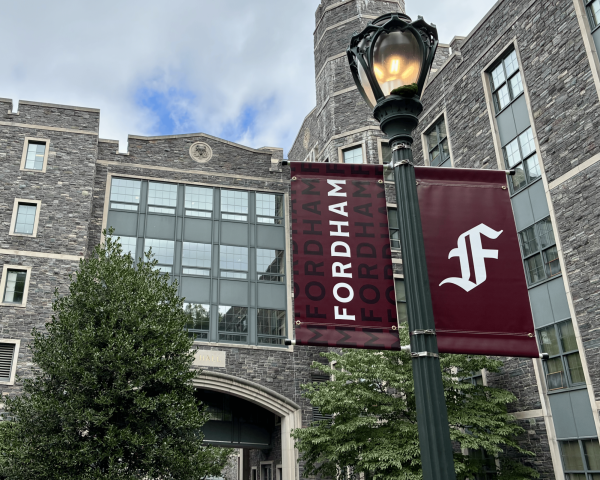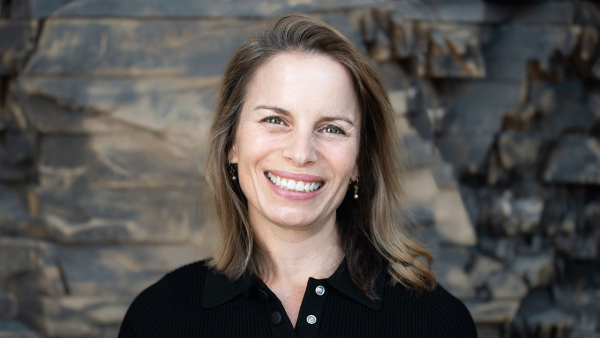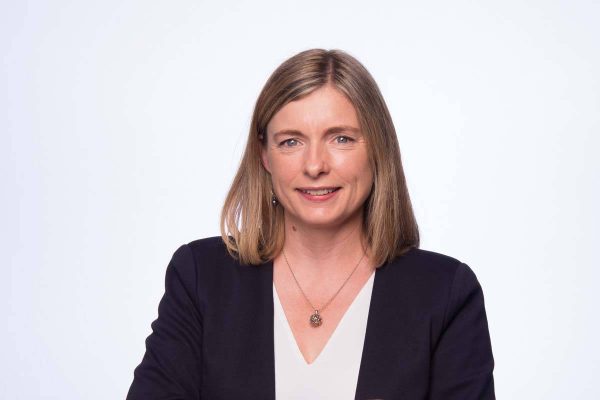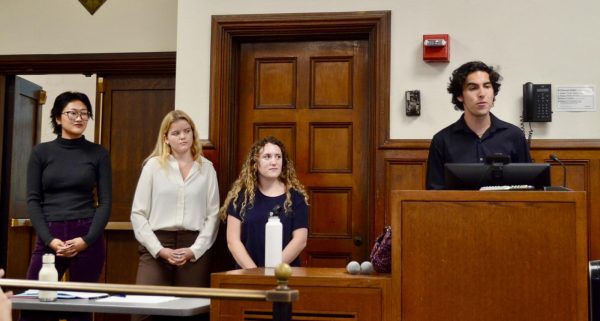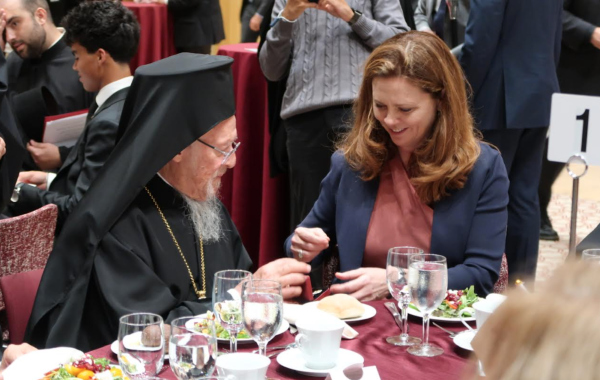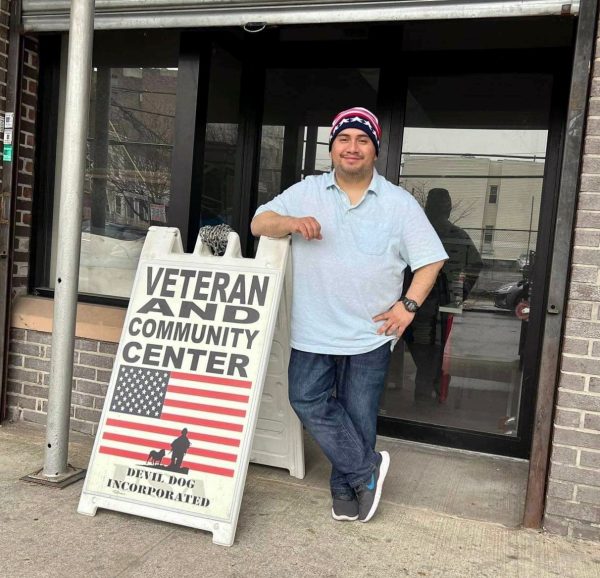Fordham Welcomes a Brand New Cross Cultural Club
On Friday, Sept. 17, the Cross Cultural Club was the first club of the 2021-2022 school year to receive official approval from USG after a year-long application process. Katharine Duffy, FCRH ’22, President of the Cross Cultural Club, first started the application process in September 2021with the goal of creating a space where “multiple cultures within one person [could] be represented on campus.”
Duffy said the club hopes to highlight different perspectives and establish a community where others can learn about each other’s unique identities. “We live in a world that’s very monocultural,” she said. “I’m mixed race, half-Black and half-Mexican but fully white passing and that comes with a lot of tension in day-to-day life.”
Duffy discussed going to other cultural club events on campus and feeling different from everyone else, discovering the need for a space on campus to “catch everyone who doesn’t fit into a certain box that a lot of the other cultural clubs emphasize.”
During high school, Duffy served as the president of a mixed race affinity group that she found to be incredibly helpful for herself and her peers. Duffy hopes the Cross Cultural Club will be a similar space where “others can learn from each other and sort out being comfortable in their own identities.”
The Cross Cultural Club faced several obstacles throughout the application process for USG and administrative approval, including setbacks due to COVID-19. Audrey Felton, FCRH ’22, vice president of Club Operations, highlighted a nuanced addition to the club’s constitution that required some creative innovation. The addition allows Lincoln Center students, as well as commuter students, to serve as “student delegates” on the Executive board so that club members who don’t live on the Rose Hill campus can be better represented within the club.
Felton said that the club is a good addition to campus because “we have so many cultural clubs, but they are more niched and represent one culture or nationality, whereas the Cross Cultural Club represents intersectionality and overlap between cultures.” Similarly, Arianna Chen, FCRH ’22, executive vice president of USG, emphasized the role of the club as a valuable resource because it embraces important aspects of intersectionality. Chen hopes the impact of the club will allow “students to be able to find community and feel like they have people they can connect with and turn to on campus.”
Duffy said that the club was able to host unofficial meetings on campus prior to receiving USG approval. Duffy said that one of the most meaningful moments since the creation of the Cross Cultural Club was when she “sat back and listened to everyone’s perspectives.” Duffy felt validated during this moment, “seeing the need on campus and knowing that people [were] passionate about making this space.”
Chen affirmed these sentiments. “We were already seeing the impact of the club before they even got official approval,” she said.
Alexander DiFiore, FCRH ’22, vice president of the Cross Cultural Club, said his role is centered around leading club meetings and facilitating conversation. Now that they’ve received official club status on campus, DiFiore said that the club will have more “breathing room to do other things,” such as going to club fairs, receiving administrative funding and resources as well as being provided with an official space to meet on campus.
Now that they’ve received approval, the Cross Cultural Club plans on hosting weekly meetings. DiFiore said the club plans on facilitating conversation on “cross cultural representation in the media, hosting viewing parties to watch international films, and taking a trip to the Queen’s Night Market.” He said the club’s executive board looks forward to utilizing campus resources in order to grow community and expand into new spaces on campus.





































































































































































































